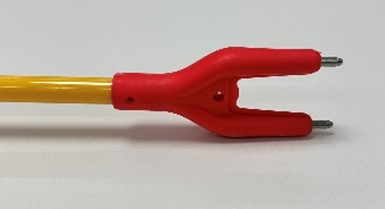Chile closes borders to meat and breeding cattle from Argentine Patagonia

The Chilean government's recent decision to close its borders to meat and breeding cattle from Argentine Patagonia has caused alarm in the regional livestock sector. Juan Luis Uccelli, executive director of CAFROPAT (Chamber of Sheep and Cattle Producers of Patagonia), gave an interview in which he analyzed the consequences of this measure, questioned the actions of national authorities and warned of a possible international domino effect.
“We said from the beginning that this could happen,” Uccelli began, referring to resolution 180/25 issued by the National Service for Quality and Safety of Agricultural Products (SENASA), which changed the status of the Patagonian barrier. “This resolution, initially intended for 90 days, was extended for another 60, until August 9, because the European Union and Chile did not respond on how they would respond to this change,” he explained.
According to Uccelli, the real problem arose with the adoption of resolution 460/25. Its preamble stated that both the European Union and Chile had responded positively to Argentina's proposals. However,the reality turned out to be completely different. "We asked for official letters, but we didn't receive them. And that's when real responses from Chile started to appear," he explained.
Chile not only rejected the amendment, but also reaffirmed its decision to restrict the import of Patagonian lamb. “On July 4, we received a response in which Chile clearly stated that it would only allow the import of live animals that were already in quarantine before the new resolution was adopted. The rest, no,” Uccelli said. “In other words, they ratified what they had already declared on June 4. But SENASA took 22 days to communicate this.”
This discrepancy between the facts and what is stated in official documents breeds mistrust in the sector. “It is very worrying that the preamble to the resolution states that the reaction was favourable, when this is clearly not the case. Favorable for what? For closing the market or for continuing exports?” he asked.
The economic impact of this measure could be devastating. According to Uccelli, Patagonia exports more than 4,000 tons of lamb a year, worth almost half a million dollars in foreign currency. But economic value is only part of the problem. “Patagonian lamb is a recognized brand in Europe, and this special value is difficult to transfer to other markets,” he explained.
If access to the European Union, Japan, the UK and other high-demand countries is lost , the consequences will affect the entire production chain. “This will lead to lower prices, because Argentina does not have a market where it can get as much as in Europe. And if the price drops, producers will get less. Many will start reducing their herds,” he warned.
Sheep sector: social impact
This will affect not only meat , but also wool, which accounts for 30% of sheep farmers’ income. “The vast majority of wool is exported. If a producer stops raising sheep, these exports will also decrease,” Uccelli noted. Patagonian sheep farming directly and indirectly employs about 200,000 people. If you multiply the number of jobs by the average number of members in each family, it is estimated that about 800,000 people depend on this activity – about 30% of Patagonia’s population. “We are talking about measures that threaten the sovereignty of the region. There are many places in Patagonia where only sheep can be raised. Adventure tourism will not replace it, as some believe,” he stressed.
Juan Luis Uccelli, executive director of CAFROPAT, expressed scepticism about the new SENASA measures.
Uccelli was careful in identifying the culprits, but clearly pointed out the short-sightedness of the state. "I am not talking about who is guilty, but about those who are responsible. SENASA, the Ministry of Agriculture, the Ministry of Economy. Everyone knew that this could happen. We reported this several times through the CAFROPAT note," he denounced.
He also criticised the haste with which the final decision was taken: “We were happy when the deadline was extended by 60 days, because that meant they were waiting for an answer. But 15 days later they passed Resolution 460, without waiting for August 9. It was an incomprehensible rush.” Regarding the background to the measure, Uccelli was sceptical: “Obviously there must have been interests that pushed for this. Private interests, not state interests. But I can’t say who they are, because I don’t know them.”
Finally, he warned that opening the sanitary barrier could lead to other, even more serious problems: “What happens if foot-and-mouth disease breaks out in Paraguay or Bolivia and spreads to Formosa or Jujuy? What happens to this weakened barrier? The real cost-benefit ratio has not been measured here. How much more shashlik will be sold? How long will the price fall? Who gets the difference when it rises again?”
The interview with Uccelli leaves a bitter feeling: a sector in which decades of work and regional development have been wasted by ill-considered decisions. And the most worrying thing: what was warned about is unfortunately happening.



























































